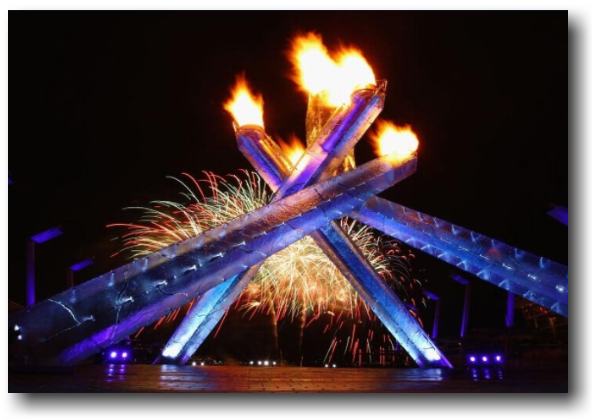Many of you probably watched the opening ceremonies of the Winter Olympics taking place in Vancouver, British Columbia, Canada. Much has been made of the ethnic and cultural inclusiveness of these Olympics, particularly as the first Olympics to include indigenous groups, as a reflection of Canada’s long and rich history of cultural diversity.

But has everyone been included appropriately? As reported by the Associated Press, the Asian Canadian community in Vancouver feels particularly left out, especially considering that they make up 30% of Vancouver’s population:
The Olympic opening ceremony celebrated Canada’s aboriginals and French speakers, but gave little hint of Vancouver’s huge, dynamic Asian population. Dismayed civic leaders are pleading for a different story at the closing show.
“It was a slap in the face,” Indo-Canadian activist Sukhi Sandhu said Thursday, referring to the opening show’s cultural segment. . . . Sandhu and his allies have called on the Vancouver Organizing Committee to ensure that the closing ceremony convey more of the character of greater Vancouver, where Chinese and South Asians comprise 30 percent of the area’s 2 million people. . . .
VANOC’s CEO, John Furlong, addressed the complaints this week, saying it was a “complex challenge” to portray Canada’s ethnic mosaic. He indicated it was too late to modify the closing ceremony, but suggested that by the end of the show there would be no doubt “who we are and who is here.” . . .
[T]hree French-Canadians were among the final 13 people given prestigious roles in the final stages of the ceremony, either helping carry the Olympic flag or assisting in the lighting of the Olympic cauldron. Sandhu and other critics were outraged that none of the 13 was what Canada classifies as “visible minorities” — Asians, blacks and other nonwhites.
“Why not Donovan Bailey? Why not Daniel Igali?” asked Sandhu, referring to the Jamaican-born Canadian sprinter who once held the world 100-meter record and the Nigerian-born wrestler who won an Olympic gold medal for Canada in 2000.
Alden Habacon, founder of an online magazine called Schema that covers multicultural trends, said he took note during the opening telecast when the Olympic flag emerged “carried by an all-white cast of Canadian heroes.”
“Don’t get me wrong — I love all of them,” he wrote. “The point is, if you were watching the opening ceremonies on television, you wouldn’t even know that it took place in the most Asian city in North America. Have any of the producers been to a high school in Vancouver?”
To give credit where credit is due, I was impressed by the amount and ways in which Canada’s indigenous groups were included in the opening ceremonies. I found their performances to be very majestic and inspiring, although I have to admit that I was a little uneasy that perhaps they were being put “on display” like some kind of museum artifact. Also, I appreciate that it can be difficult to ensure that all racial/ethnic/cultural groups are included appropriate, especially in such an ethnically diverse country as Canada.
Having said that, unfortunately, this apparent oversight on the part of Vancouver’s and Canada’s Olympic organizers seems to be another example of Asians — whether they’re in the U.S., Canada, or any other White-majority country — being treated as invisible minorities, in ironic contrast to their status as “visible minorities.”
Asian Americans certainly know this feeling of exclusion or ridicule too well and it is sad to see that in a country like Canada that, in many cases, prides itself on being more racially/ethnically tolerant than the U.S., these dynamics of marginalization toward our Asian Canadian counterparts apparently operate in much the same way.
